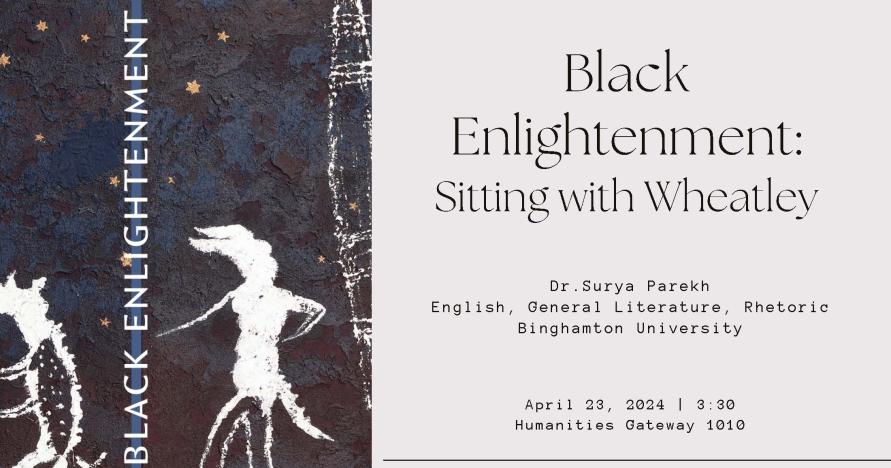
In this talk, drawing on the last chapter of his book, Black Enlightenment, Surya Parekh considers the predicament of writing about the African-American poet Phillis Wheatley, known to her Enlightenment contemporaries through the figure of Black genius. He asks, how might we try to access the space of someone whose published poetry was largely written while they were enslaved? How do we acknowledge our own contemporary desires in imagining Wheatley?
In Black Enlightenment Surya Parekh reimagines the Enlightenment from the position of the Black subject. Parekh examines the works of such Black writers as the free Jamaican Francis Williams (1697–1762), Afro-British thinker Ignatius Sancho (1729?–1780), and Afro-American poet Phillis Wheatley (1753?–1784), placing them alongside those of their white European contemporaries David Hume (1711-1776) and Immanuel Kant (1724-1804). By rethinking the Enlightenment and its canons, Parekh complicates common understandings of the Enlightenment wherein Black subjects could exist only in negation to white subjects. Black Enlightenment points to the anxiety of race in Hume, Kant, and others while showing the importance of Black Enlightenment thought. Parekh prompts us to consider the timeliness of reading Black Enlightenment authors who become “free” in a society hostile to that freedom.
Sponsors: UCI African American Studies Department, SOH Black Studies Cluster, Culture & Theory, Comparative Literature, Philosophy, Critical Theory, and Gender & Sexuality Studies
